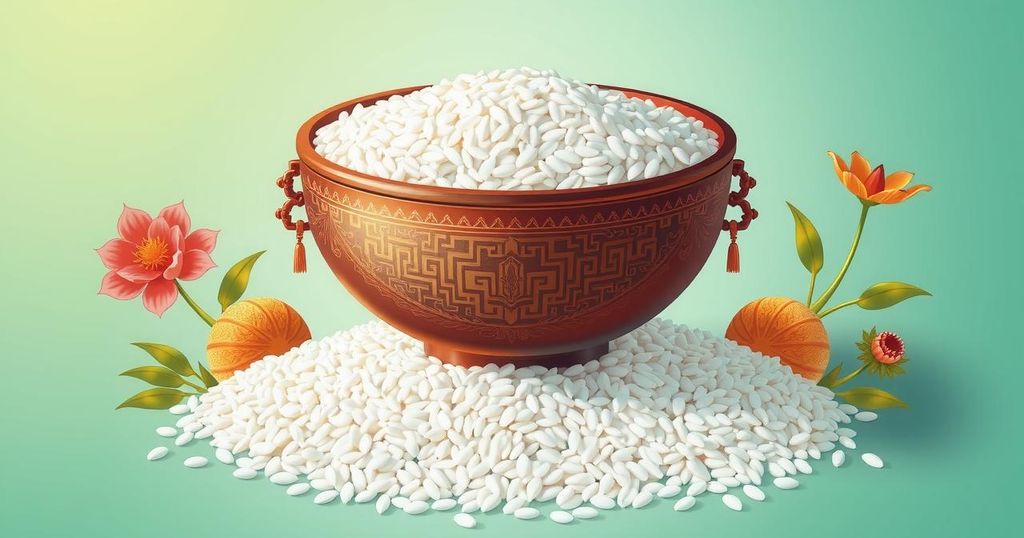U.S. Criticism of Japan’s Rice Tariffs Highlights Trade Tensions

The U.S. criticized Japan’s 700% rice tariff, asserting calls for fair trade. White House statements indicate potential reciprocal tariffs ahead. U.S. projections suggest increased rice production and exports if Japan revises its policies.
On March 12, 2025, the United States criticized Japan for its significant rice import tariff, which stands at 700%. White House Press Secretary Karoline Leavitt highlighted this concern during a briefing, expressing that President Trump advocates for equitable trade practices. Leavitt noted that Japanese rice might face reciprocal tariffs as part of an administration strategy designed to align tariffs imposed by trading partners.
President Trump instructed officials in February to create plans for imposing reciprocal tariffs, targeting the same rate as those held by other countries. Japan specifically imposes a tariff of ¥341 per kilogram on rice exceeding its duty-free quota, aimed at protecting its domestic agricultural sector. This tariff was not reduced during Trump’s initial presidency.
The U.S. International Trade Commission indicated last week that expanding Japan’s duty-free import quota could increase American rice production and exports. Furthermore, it criticized Japan’s rice import policy for its lack of transparency, suggesting that improvements in this area would benefit trade relations.
The United States has taken a firm stance against Japan’s high rice import tariffs, reinforcing President Trump’s call for fair trade practices. As negotiations continue, reciprocal tariffs are on the horizon, potentially impacting Japanese agricultural imports. The U.S. authorities believe that increasing transparency in Japan’s rice policy and expanding the duty-free quota could enhance American exports.
Original Source: japannews.yomiuri.co.jp





